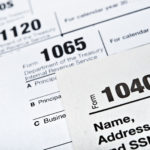[su_box title=”Keep in mind…” style=”default”]
- A private health insurance rebate is a refund sent to you by your insurance company
- Under the Affordable Care Act, you may receive a rebate if your insurer does not meet the 80/20 rule
- The 80/20 rule requires your insurance company to spend at least 80 percent of your premium payments directly on medical costs
- You may also be eligible for a tax refund or tax subsidies through the Affordable Care Act
[/su_box]
If your private health insurance company utilized your premium payments incorrectly, you may be eligible for a rebate. The insurance rebate is essentially a refund check. Rebate amounts can vary depending on the state you live in and your insurance company. If your insurance company is compliant with the 80/20 rule, you will not receive an insurance rebate.
Enter your zip code above and find private health insurance with free online quotes!
What is the 80/20 rule?
The 80/20 rule under the Affordable Care Act requires insurance companies to spend 80 percent of your premium payments on your direct medical costs. The other 20 percent can go towards administrative and marketing fees and other similar costs. Companies that insure larger groups with more than 50 people must spend at least 85 percent of premium costs on medical care and quality improvement. You will receive a rebate if your insurance company does not meet these requirements.
You can receive your rebate in a number of ways. You may receive a check in the mail, a deposit in the account that you used to pay the premium or a reduction in your future premiums.
Your employer can also choose to deliver the rebate in a different way that will directly benefit employees. Your insurance company must notify you that you are eligible for a rebate by August 1.
If you are insured through an individual plan as opposed to an employer-based plan, you are still eligible for a rebate. You will receive it directly from your insurance company instead of through your employer. If your insurance company has fewer than 1000 beneficiaries in a particular area, they are generally not required to meet the 80/20 rule.
Am I eligible for a tax refund under the Affordable Care Act?
Tax refunds are slightly different than private health insurance rebates. You may be eligible for a tax refund if your income was lower than you estimated on your application and you purchased a health plan through the healthcare exchange marketplace.
In order to qualify for a tax refund, you will have to fill out the premium tax credit form 8692 and prove that the amount of money you were paid is less than you are owed based on your income. The amount that you are owed depends on your income and household size so may qualify for a refund even if you did not originally qualify for financial assistance.
You will only receive a tax refund if you fill out the 8692 form. You will also be required to fill out form 1095-A. If your income was higher than you expected it to be, you may owe money back to the IRS instead of receiving a refund. There is a limit on how much you can owe back for receiving advanced tax credits.
What are the tax subsidies under the Affordable Care Act?
You may be eligible for savings when you first apply for an insurance plan through the healthcare exchange marketplace. The three types of subsidies include premium tax credits, cost-sharing reduction subsidies, and low-cost insurance programs such as Medicaid and the Children’s Health Insurance Program. These subsidies do not affect whether or not you receive a rebate from your insurance company but a number of tax credits you receive directly affect your eligibility for a refund.
Subsidies are only available through the healthcare exchange marketplace and they are completely based on income.
If you make less than 400 percent of the federal poverty level, it is extremely likely that you qualify for some sort of tax subsidy. They can vary depending on your state and the plan that you purchase.
Cost-sharing reduction subsidies are only available for those who make less than 250 percent of the federal poverty level and purchase a silver plan on the marketplace. You can have your tax credits applied to your premium in advance either partially or fully or you can wait and receive them when you file your federal tax returns. Your marketplace plan cannot cost more than 9.5 percent of your total income after the tax credits are applied.
Will I get a health insurance rebate?
A private health insurance rebate is a refund check that you may be eligible to receive from your insurance company. Under the Affordable Care Act, your insurance company is required to issue you a rebate if they were not compliant with the 80/20 rule which mandates that 80 percent of your premiums go directly towards medical costs.
Enter your zip code below and compare private health insurance costs for free today!
[su_spoiler title=”References:” icon=”caret-square” style=”fancy” open=”yes”]
- https://resources.ehealthinsurance.com/affordable-care-act/health-insurance-rebate
- https://www.healthcare.gov/health-care-law-protections/rate-review/
- http://obamacarefacts.com/2015/01/22/obamacare-tax-refund/
- http://obamacarefacts.com/obamacare-subsidies/
[/su_spoiler]






